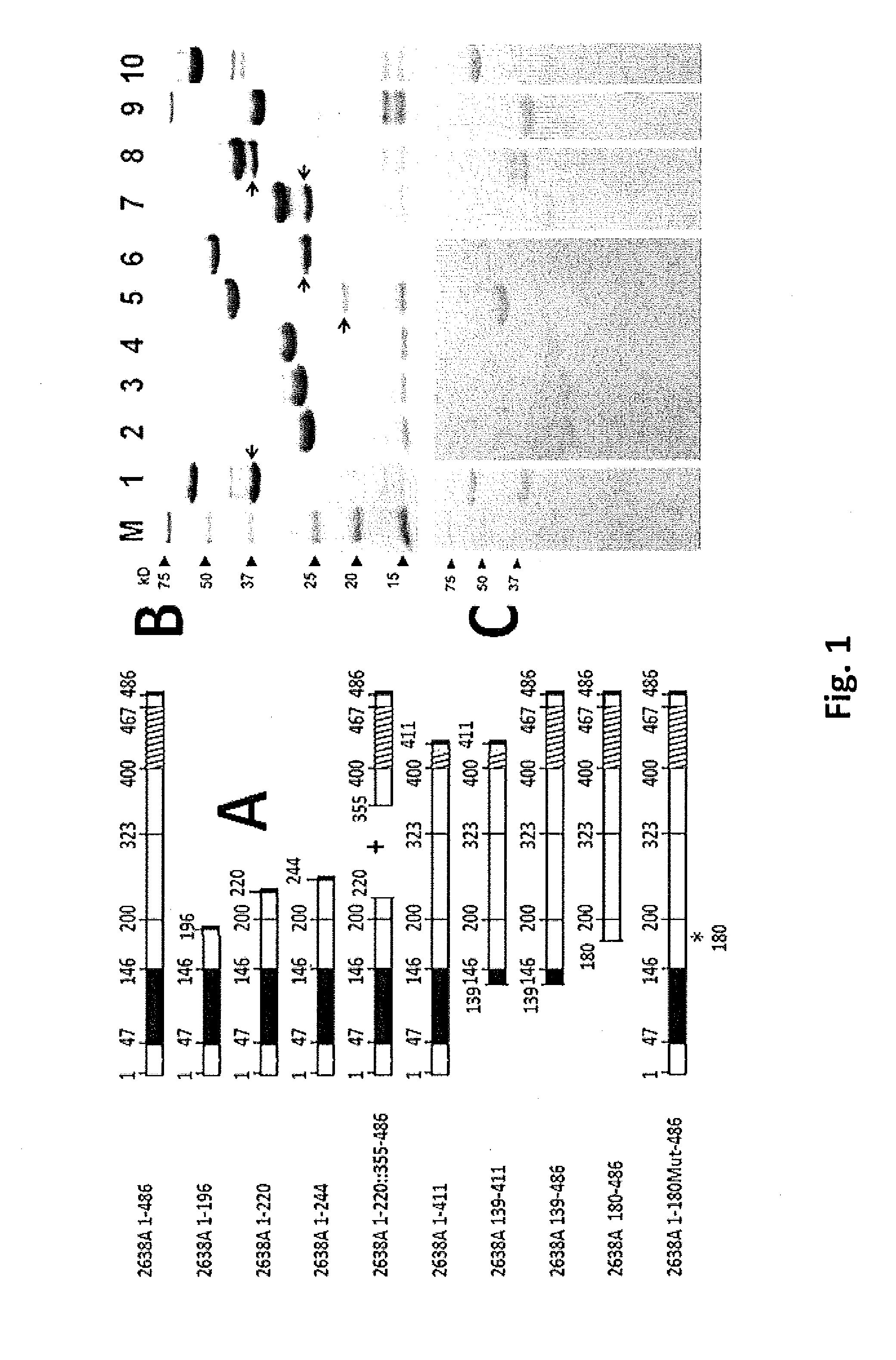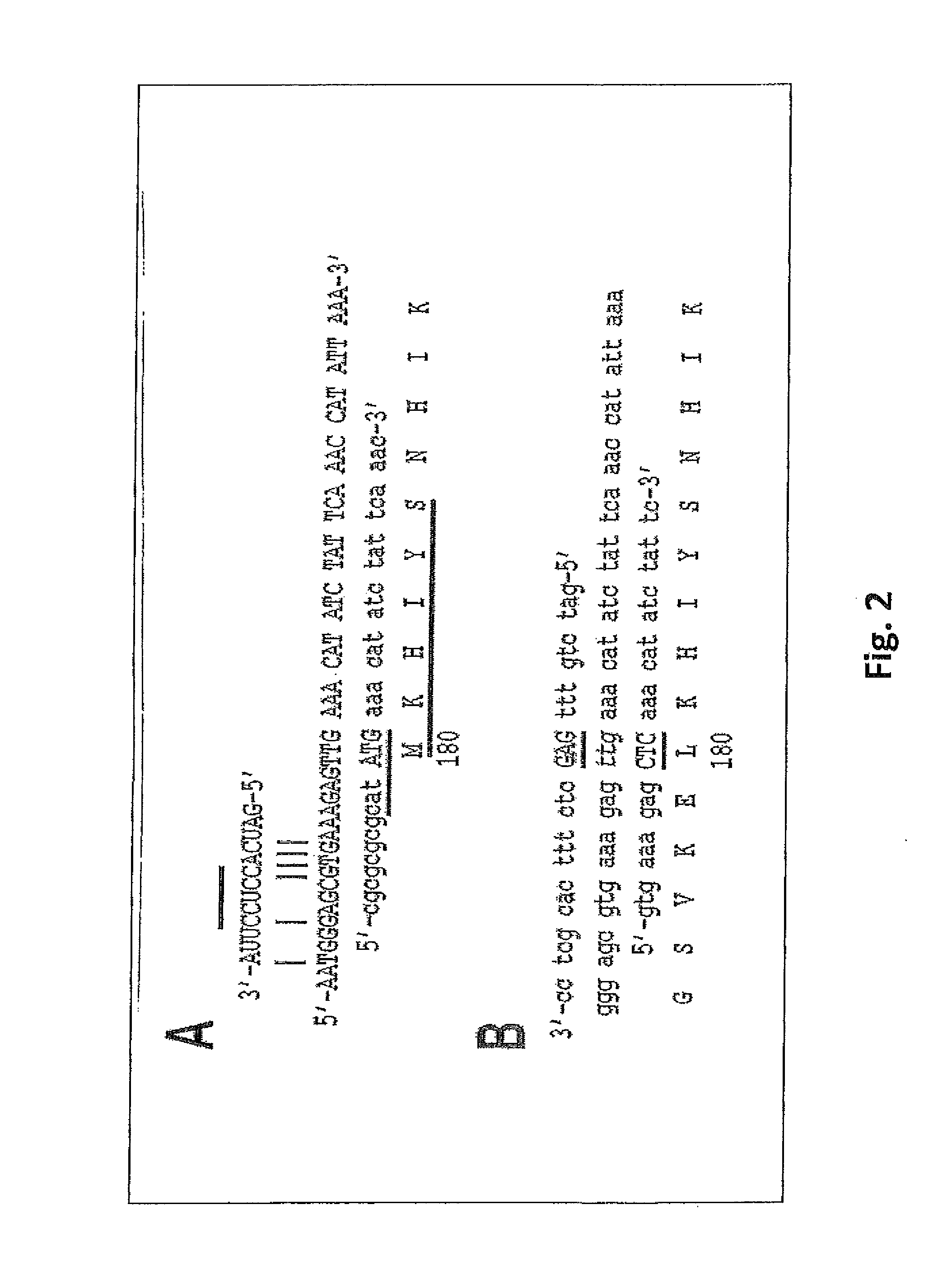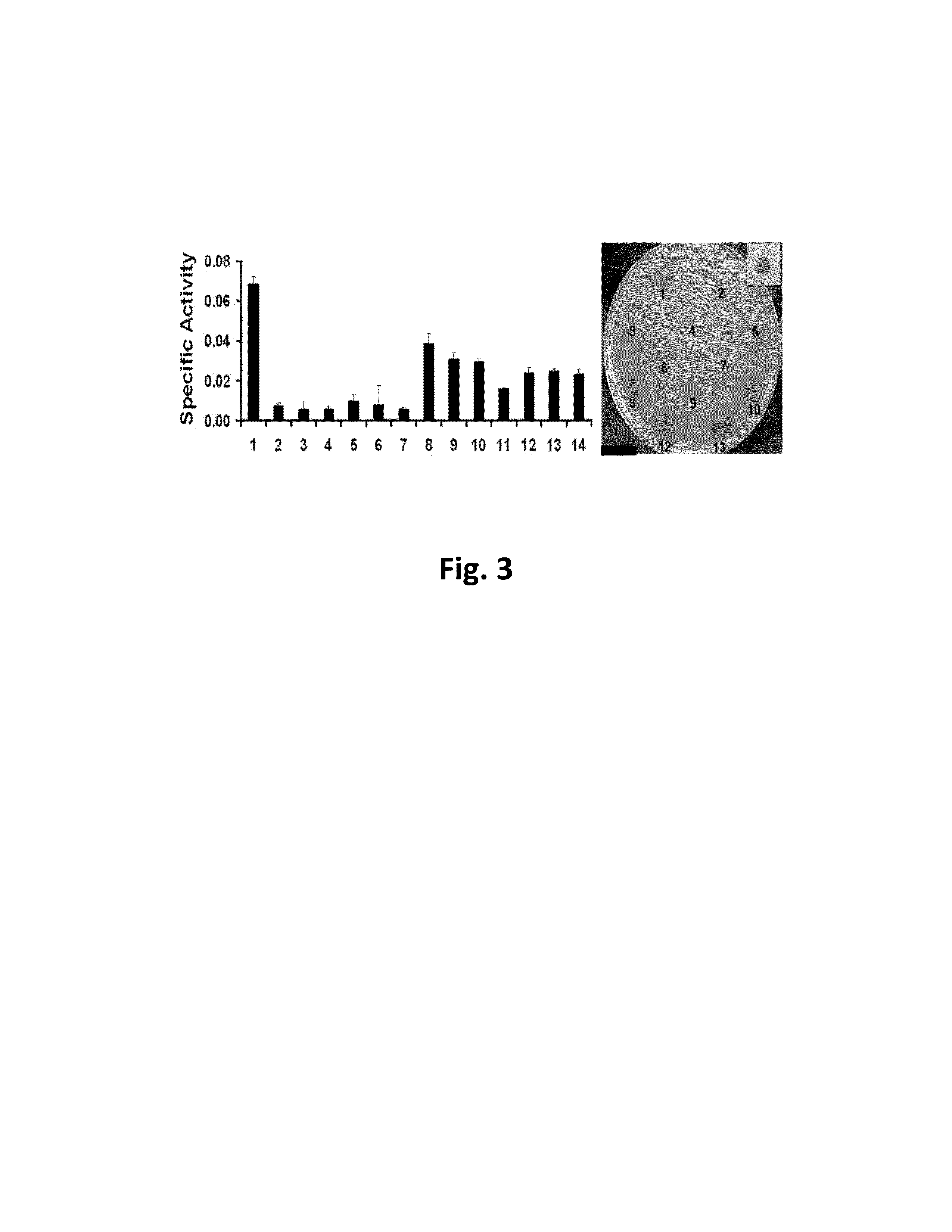Staphylococcal Phage2638A endolysin amidase domain is lytic for Staphylococcus aureus
a technology of staphylococcal phage2638a and amidase domain, which is applied in the direction of dna/rna fragmentation, enzymology, medical preparations, etc., can solve the problem that the antibiotic treatment of mastitis is less than 50% effective, and achieves enhanced antimicrobial activity and specificity.
- Summary
- Abstract
- Description
- Claims
- Application Information
AI Technical Summary
Benefits of technology
Problems solved by technology
Method used
Image
Examples
example 1
Bacterial Strains and Culture Conditions
[0076]The strains used include numerous S. aureus strains and mastitis isolates, S. chronogenes, S. epidermidis, S. simulans (a gift from M. Paape, USDA, Beltsville, Md.), S. hyicus, S. warneri, and S. xylosus described in Table 1.
[0077]
TABLE 1Susceptibility of multiple bacterial strains to lysis by2638A after 1 and 3+ days.Phage 2638APhage 2638AEndolysinEndolysinS. aureus. Strainday 1day 3+S. aureus. Strainday 1day 3+Newman−−Tanji 1−−305−−Tanji 2−+Newman smr−−Tanji 3−−Newman ΔtagO++++++Tanji 9−−Newman Δica−−Tanji 19−+Newman ΔdltA−−Tanji 20−+Newman−−Tanji 21−(+)srtA::ermBMN8−++Tanji 26−+MN8 Δica−++Tanji 28−−MN8 ΔsarA(+)+++Tanji 29(+)+(+)ALC 1342−−Tanji 31−−ANG 133−−Tanji 33−+ANG 144−−Tanji 47−(+)SA113+++Tanji 48−+SA113 ΔtagO++++++Tanji 49−+(+)SA113 ΔdltA+(+)++(+)Reynolds (CP-)−−Reynolds (CP5)−−S. chromogenes+(+)++(+)Reynolds (CP8)−−S. epidermidis−+NRS 382 (MRSA)−−S. hyicus−−NRS 383 (MRSA)(+)++S. simulans−(+)NRS 384 (MRSA)−(+)S. warneri−−NRS 38...
example 2
[0079]We isolated the 2638A gene from S. aureus 2854 (HER 1283; University Laval, Quebec, Canada) genomic DNA using PCR cloning, (primers described in Table 2) and subcloned this fragment into pET21a (Novagen) E. coli expression vector (construct 2638A 1-486; FIG. 1A). The gene fragments were amplified with PCR primers (2) engineered with either an NdeI or XhoI site designed to introduce appropriate restriction enzyme sites for subcloning into pET21a. PCR products were gel purified, digested appropriately with restriction enzymes, purified over a Micro Bio Spin P30 desalting column (Bio-Rad Inc., Hercules, Calif.) and introduced into similarly digested, dephosphorylated, and gel-purified pET21a via conventional means. All constructs (FIG. 1A and Table 2) are C-terminally His-tagged with eight additional amino acid residues introduced at the C-terminus corresponding to the XhoI site (Leu-Glu) followed by six His residues. All subcloning was performed in E. coli DH5α (Invit...
example 3
Protein Purification and SDS Analysis
[0083]Mid log phase (OD600 nm of 0.4-0.6) E. coli cultures harboring pET21a-derived expression vectors were grown under ampicillin selection, chilled on ice for 30 min, induced with 1 mM IPTG, and incubated with shaking for 18 h at 19° C. Escherichia coli harvested from 100 mL cultures were suspended in 2 mL lysis buffer (50 mM NaH2PO4, 300 mM NaCl, 10 mM imidazole, pH 8), sonicated on ice for 15×5 s pulses separated by 15 s rests, and centrifuged at 9000 g. for 30 min in a Sorvall HS4 rotor. The cleared supernatant was applied to 1 mL nickel-nitrilotriacetic acid (Ni-NTA) Agarose (nickel matrix) in a slurry and mixed gently for 1 h at 4° C. (Qiagen). The wash and elution buffer profiles were empirically determined for all constructs to be 10 mL of 10 mM imidazole, 20 mL of 20 mM imidazole and eluted into 1.2 mL of 250 mM imidazole in the same phosphate-buffered saline (50 mM NaH2PO4, 300 mM NaCl, pH 8.0). One percent of glycerol was added immedi...
PUM
| Property | Measurement | Unit |
|---|---|---|
| Tm | aaaaa | aaaaa |
| temperatures | aaaaa | aaaaa |
| pH | aaaaa | aaaaa |
Abstract
Description
Claims
Application Information
 Login to View More
Login to View More - R&D
- Intellectual Property
- Life Sciences
- Materials
- Tech Scout
- Unparalleled Data Quality
- Higher Quality Content
- 60% Fewer Hallucinations
Browse by: Latest US Patents, China's latest patents, Technical Efficacy Thesaurus, Application Domain, Technology Topic, Popular Technical Reports.
© 2025 PatSnap. All rights reserved.Legal|Privacy policy|Modern Slavery Act Transparency Statement|Sitemap|About US| Contact US: help@patsnap.com



